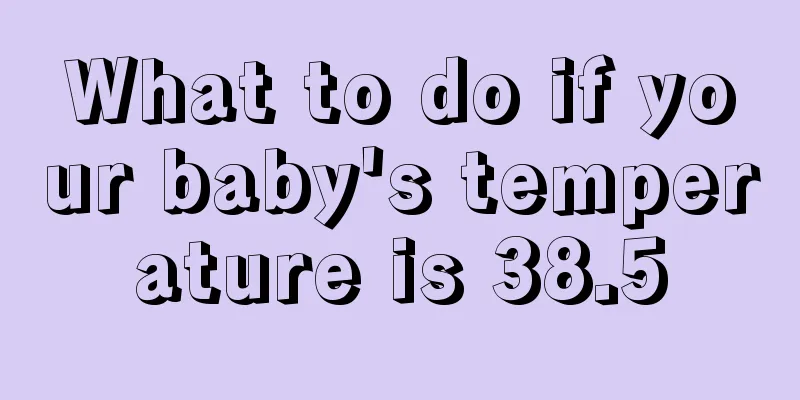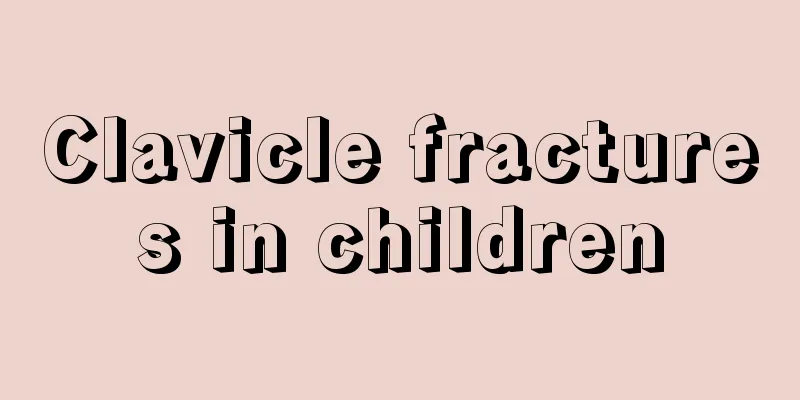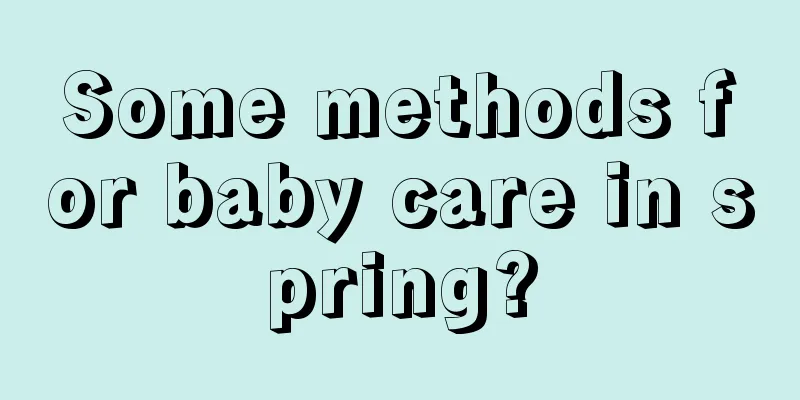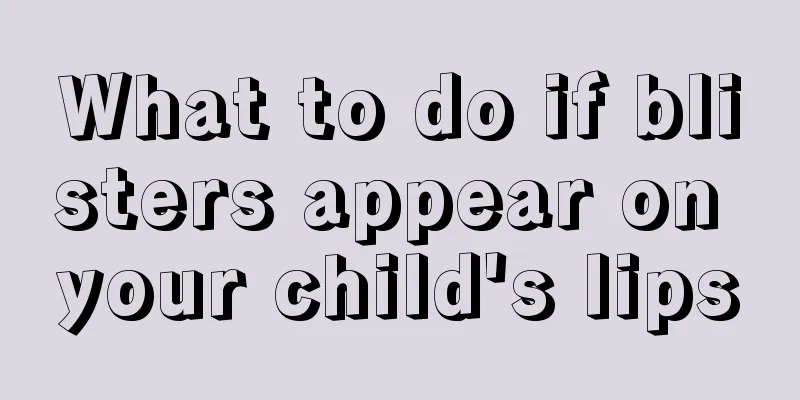What to do if your baby's temperature is 38.5

|
Fever in children is a common condition and can be caused by a variety of diseases. Generally speaking, when a child's fever is below 38 degrees, there is basically no need to use antipyretics. Once it exceeds 38 degrees, the situation becomes more serious and effective measures must be taken in time to reduce the fever to prevent serious consequences such as shock. So, what should we do if the baby's temperature is 38.5? Let's take a comprehensive look at it below. For fever, 38.5 is a dividing line. Why do you say that? When the baby's fever is below 38.5, there is no need to use antipyretics, especially when it is below 38 degrees. If the baby's temperature exceeds 38.5 degrees, antipyretics must be used to control the temperature, otherwise it will easily cause shock or convulsions. In addition, what measures should parents take after the baby has a fever? When the baby's body temperature is abnormal, mothers should first observe whether the baby has other abnormal symptoms, such as coughing, runny nose, diarrhea, etc. If there are none, observe whether the baby's body temperature has risen because he is wearing too many clothes. In this season, the temperature begins to drop, and mothers begin to worry whether the baby is wearing too little. They are always worried about catching a cold and getting sick, and want to dress the baby more, which causes the baby to sweat all over when he moves. Children who wear too many clothes may not necessarily not catch a cold, and children who wear too many clothes may not feel comfortable when moving. Therefore, adding clothes appropriately is the best way to care for your baby in autumn. If the baby's fever is not caused by this reason, then we need to find out the cause. Is it caused by a cold? Indigestion? Roseola infantum? Diarrhea? And so on. After finding the cause of the disease, the first thing to do is to prescribe symptomatic medication, followed by careful care. A baby's fever of 38.5 or above is considered a high fever. We must control the body temperature as soon as possible and do not let the baby's temperature continue to rise or rise suddenly, as this will cause febrile convulsions, shock, and convulsions. When the temperature exceeds 38.5 degrees, antipyretics should be used. Antipyretics are oral and suppositories. You can also go to the hospital for antipyretic injections. However, no matter which antipyretic method is used, you must pay attention to the dosage of the medication and strictly follow the baby's weight as the standard. There are also restrictions on the use of antipyretic drugs, which cannot exceed 4 times within 24 hours. That is to say, it should be used once every 4-6 hours, and it cannot be taken a second time within this time, otherwise it will result in an overdose of antipyretic drugs. Some parents asked, what should we do if the baby's fever doesn't go down after taking the antipyretic medicine? Should we just endure it? Of course not. In addition to antipyretic drugs, we can also use physical cooling! Wiping the body with warm water and taking a hot bath are all good ways to reduce fever, but these physical methods of reducing fever can only temporarily control the body temperature. They need to be done continuously to lower the body temperature slightly, and the effect is definitely not as obvious as that of antipyretic drugs. When your baby has a fever, you should let him drink plenty of water. If he falls asleep, you can feed him with a bottle. When he is awake, he should eat more diuretic fruits, such as watermelon. The above is an introduction to what to do if your baby’s temperature is 38.5. I hope it will be helpful to parents. Children are young and have limited body resistance. If they have a high fever, it is best to reduce the fever in time. Maintaining a high temperature for a long time will affect the child's brain. It is necessary to master the correct method of reducing fever to prevent more serious effects on the child. |
<<: What to do if your baby's eyelids are red
>>: What factors are related to children's coughing and bleeding?
Recommend
What is the best way to treat rectal polyps in children?
Are rectal polyps the only treatment options avai...
How is Mycoplasma pneumoniae infection treated?
Mycoplasma pneumoniae infection is a disease caus...
Why is my child’s face swollen?
Children generally have delicate facial skin, and...
Symptoms of high fever convulsions in babies
A baby's high fever convulsion refers to a co...
What are the white spots on my child’s fingernails?
Children's health has always been the top con...
The impact of teeth grinding in 3-year-old children
We all know that any disease will cause some bad ...
How to clean baby's ears
Children will have more ear secretions and like t...
Will a newborn baby have diarrhea if he changes his milk powder?
For mothers, the most important issue is whether ...
Why does my child always feel dizzy?
As soon as the child feels a little uncomfortable...
The baby's fever does not go down after the antipyretic injection
It is actually very common for babies to have a f...
What to do if your child has abdominal bloating and pain? 7 methods to achieve amazing results
It is a very troublesome thing for children to ha...
How to make baby appetizer tea?
Generally speaking, younger babies are very picky...
What should I do if my baby has a fever after vaccination?
Vaccinations are a must. Today's environmenta...
Why does my child always have a low-grade fever?
Children have relatively poor resistance, so it i...
The consequences of not getting vaccinated
We all know that when a child is born, the doctor...









